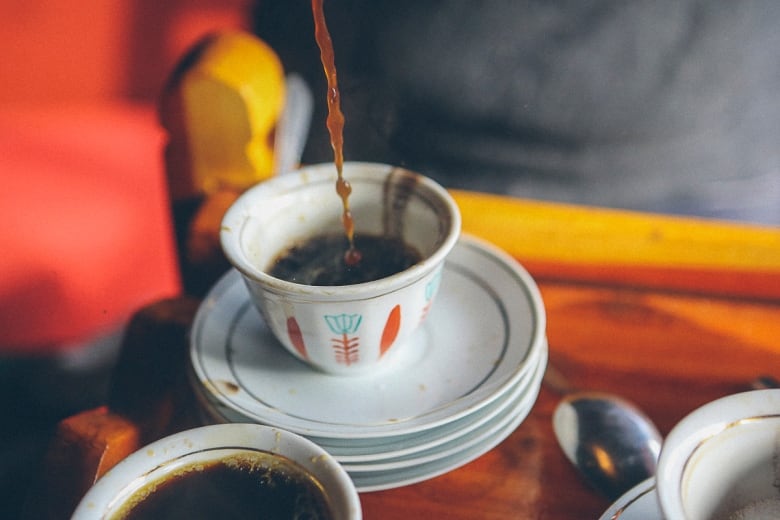Soul food dishes in Waterloo region inspired by tradition
'Jamaicans are as particular about their food and as regional as Italians are,' one chef says
As Black History Month, February is dedicated to recognizing the achievements and contributions of Canadians of African descent who help make the country a culturally diverse one.
Similarly, many of these same Canadians make local food cultures diverse and delicious as well.
Many of the current residents of North Buxton, Ontario, south of Chatham, can trace their heritage to enslaved people in Kentucky, Tennessee, Virginia and the Carolinas.
It's a settlement — and a rich trove of history — that was founded in 1849 as part of the Underground Railroad, according to Shannon Prince, curator of the Buxton National Historic Site and Museum.
As for the food of their forbears, Prince refers to it as "soul food," with recipes passed down from generation to generation. She describes very old recipes that have been written out, but many were kept in the memory banks of the cooks that reveal similarities between then and now.

"To me, it all stems back from when our ancestors were enslaved. They weren't given those good cuts of meat. You had the pigs' feet and ears, the skin, the tripe, the chitlins, the ham hocks, the ox tails, that sort of thing," Prince said.
It was the same for the vegetables, which would include okra and dandelion greens, collards and kale. There was no butter for them to use, so lard and other animal fats were replacements for baking and frying.
"They knew how to really season because those were the meats and vegetables they were given and had to use," she said, describing the dishes as comforting foods that "take memories and translate them to what good eating means to them when they were enslaved."
Regional food differences
Waterloo-based chef Derek Hines operates Boutique Catering and claims Jamaican and Irish heritage. He advocates for a deeper recognition of the culture and the food.
"I think it's a good thing that we recognize accomplishment and black history, but I champion a day where every day is black history month where it doesn't need to be celebrated because it's just accepted," he said.
Hines had the opportunity to spend some time in Jamaica — an island of 10,000 square-miles and only three million people — with his culinary work.
"From a cultural perspective ... I think Jamaicans are as particular about their food and as regional as Italians are, so you could go to three Jamaican restaurants and there would be similarities but there would be marked differences as well."
He points out several Caribbean restaurants in the area, adding that, "there's some great Jamaican food represented in town."

Changing traditional recipes
Chef Andrew Beckford's family hails from Jamaica, and in his preparation of jerk paste for his catering company, he sticks to traditional ingredients.
"The recipe was my dad's," Beckford said. "It's similar to other pastes, but mine is partially cooked. Some of the ingredients are grilled and then combined with the others. I then puree the raw ingredients with the cooked ones and then simmer and reduce it. That intensifies the flavours and gives it a deep, rich colour."
Among the key ingredients for his jerk paste, which he uses in his Jerk Chicken and Honey Lime Sauce, Beckford uses the white portion of the green onion as well as Scotch Bonnet peppers, a Jamaican ingredient with a pretty high level of fiery heat.
His family uses white vinegar as the acid rather than apple cider vinegar or rice wine vinegar. "To me, that's not traditional."
Allspice is another key ingredient for Beckford's jerk paste, but it's one that reveals a cultural appropriation: white explorers in the 1600s plucked native Jamaican bayberry (pimenta or "pimento") from the island and brought it to England calling it "allspice" because they detected cinnamon, cloves and nutmeg.
"In Jamaica, we call it pimenta, but that's confusing here," Beckford said with a laugh.

Below is a selection of restaurants and caterers in the area specializing in Caribbean, African and southern U.S. foods. (Please check with individual venues for hours of opening and dish availability.)
Caribbean
Beckford Catering, Waterloo
Big Jerk Caribbean Catering and Bakery, Waterloo
Boutique Catering, Waterloo
Uptown Jerk, Waterloo
Caribbean Kitchen, Kitchener (in Kitchener Market)
Ellison's Bistro, Kitchener
House of Patties, Kitchener
Passion Flavour Grill & Tap, Kitchener
Rainbow Caribbean Cuisine, Kitchener
Ivey's Jamaican Restaurant, Cambridge
Guelph Caribbean Cuisine, Guelph
Ethiopian
East African Café, Kitchener
Kishki World Foods, Kitchener
Muya Ethiopian, Kitchener
Warka Tree, Guelph
Southern U.S and low country
Grand Trunk Saloon, Kitchener
Hog Tails Smoke & Soul BBQ, Waterloo
Lancaster Smokehouse, Kitchener